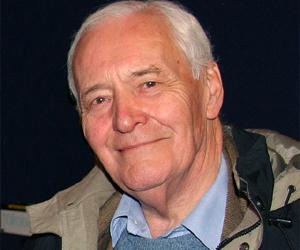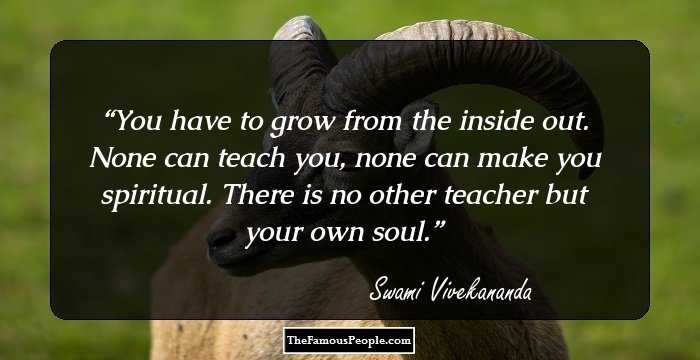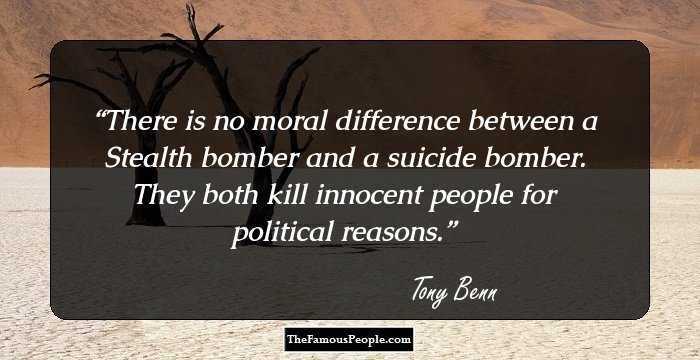
There is no moral difference between a Stealth bomber and a suicide bomber. They both kill innocent people for political reasons.
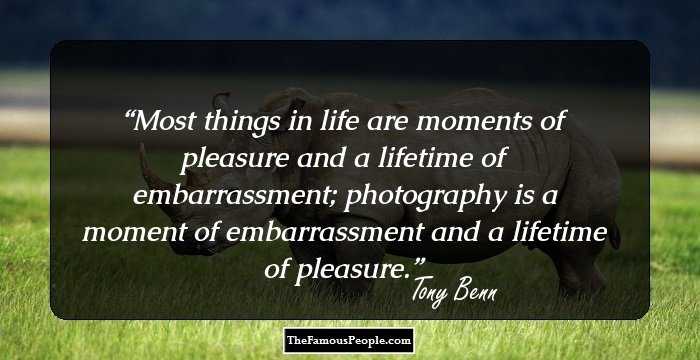
Most things in life are moments of pleasure and a lifetime of embarrassment; photography is a moment of embarrassment and a lifetime of pleasure.
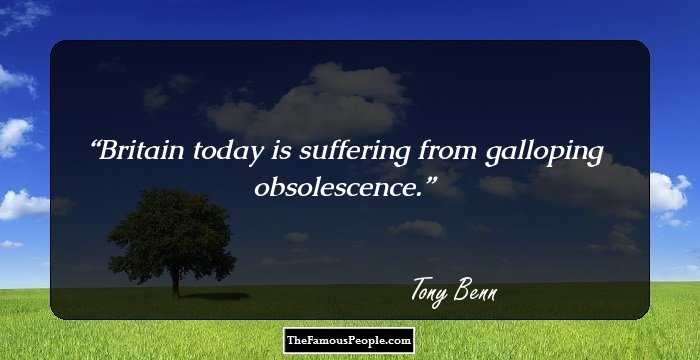
Britain today is suffering from galloping obsolescence.
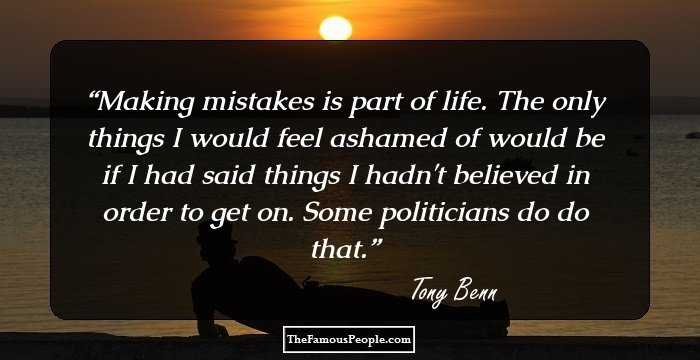
Making mistakes is part of life. The only things I would feel ashamed of would be if I had said things I hadn't believed in order to get on. Some politicians do do that.
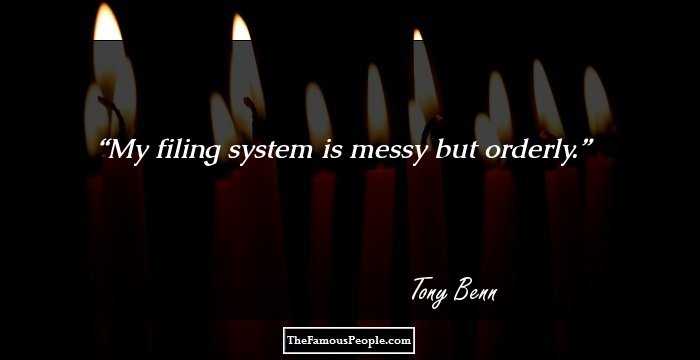
My filing system is messy but orderly.
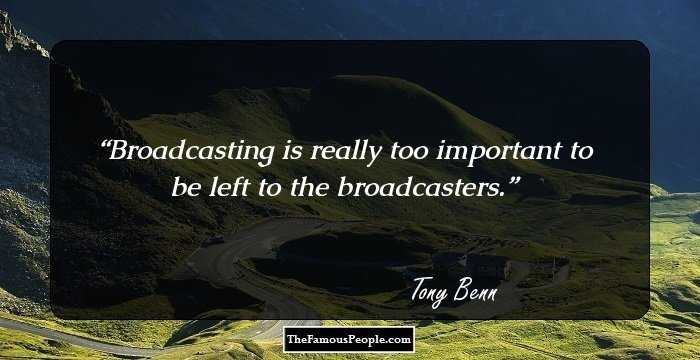
Broadcasting is really too important to be left to the broadcasters.

I am on the right wing of the middle of the road and with a strong radical bias.
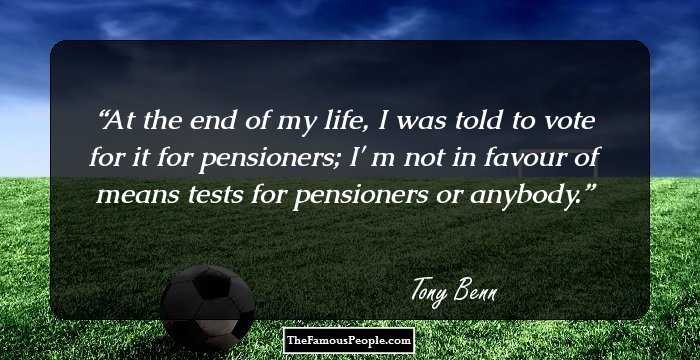
At the end of my life, I was told to vote for it for pensioners; I' m not in favour of means tests for pensioners or anybody.
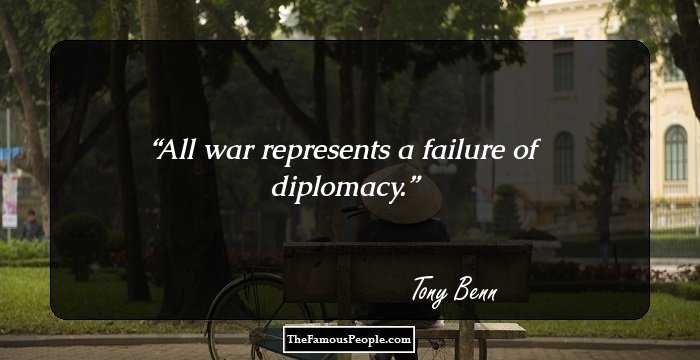
All war represents a failure of diplomacy.
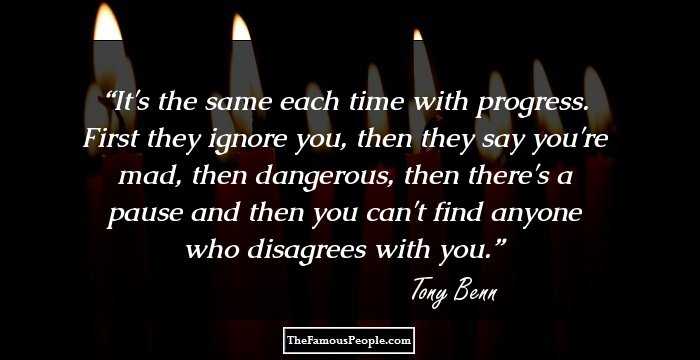
It's the same each time with progress. First they ignore you, then they say you're mad, then dangerous, then there's a pause and then you can't find anyone who disagrees with you.
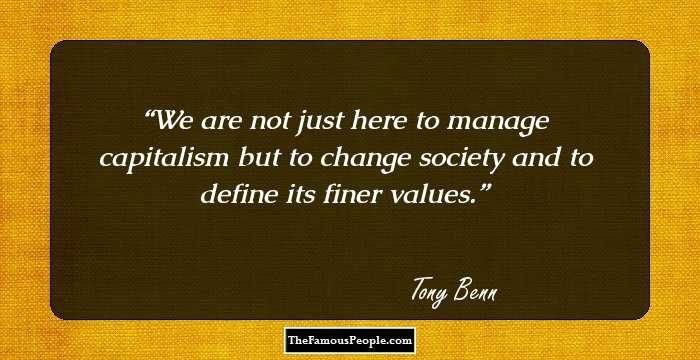
We are not just here to manage capitalism but to change society and to define its finer values.
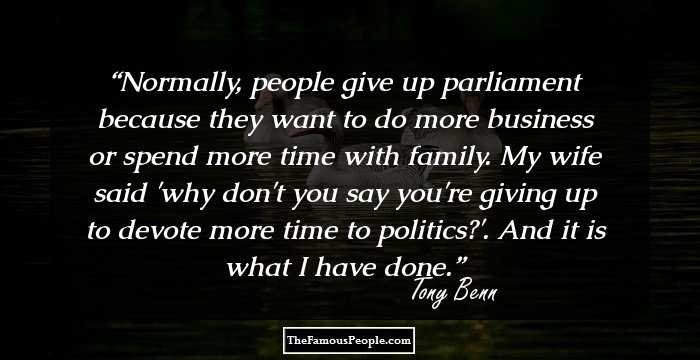
Normally, people give up parliament because they want to do more business or spend more time with family. My wife said 'why don't you say you're giving up to devote more time to politics?'. And it is what I have done.
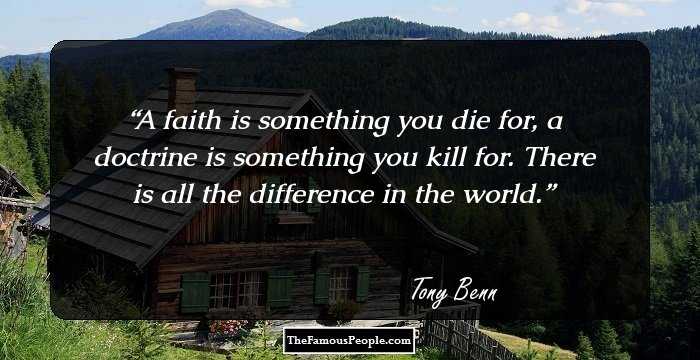
A faith is something you die for, a doctrine is something you kill for. There is all the difference in the world.
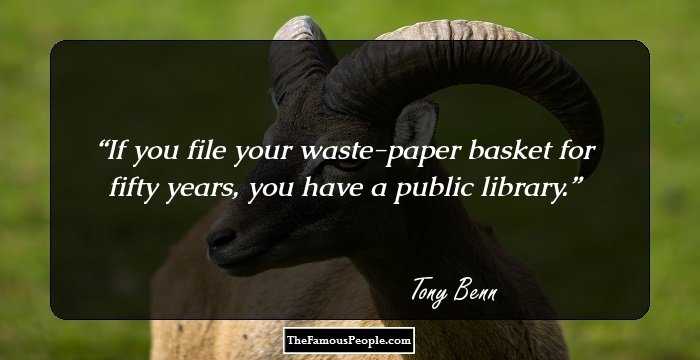
If you file your waste-paper basket for fifty years, you have a public library.
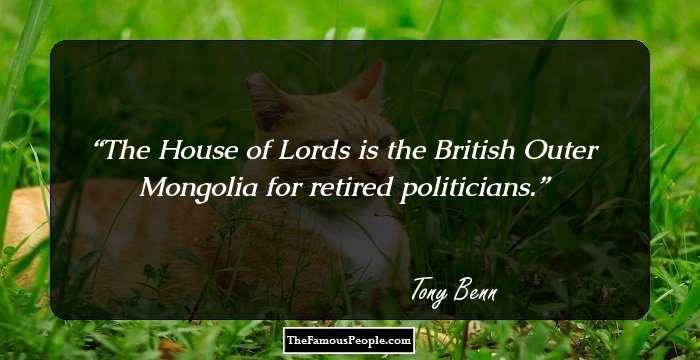
The House of Lords is the British Outer Mongolia for retired politicians.
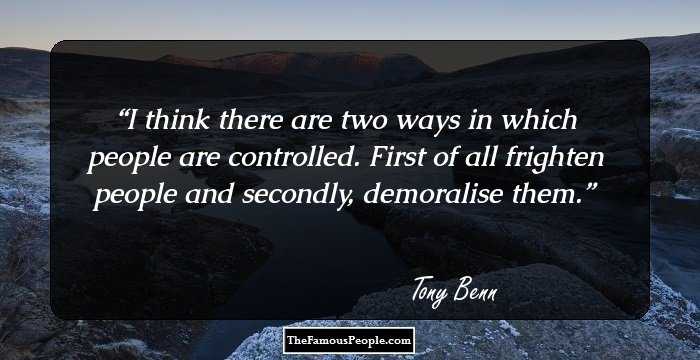
I think there are two ways in which people are controlled. First of all frighten people and secondly, demoralise them.
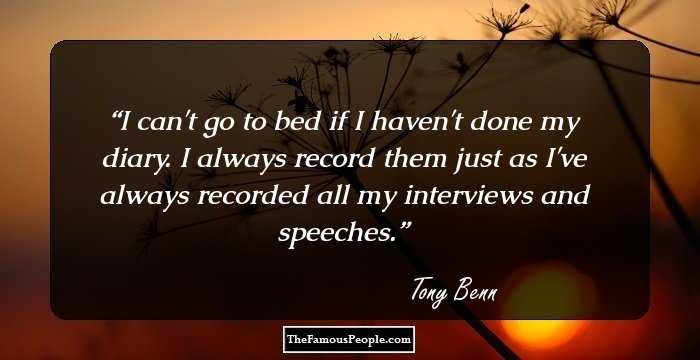
I can't go to bed if I haven't done my diary. I always record them just as I've always recorded all my interviews and speeches.

My day rotates around my family. I am very lucky.
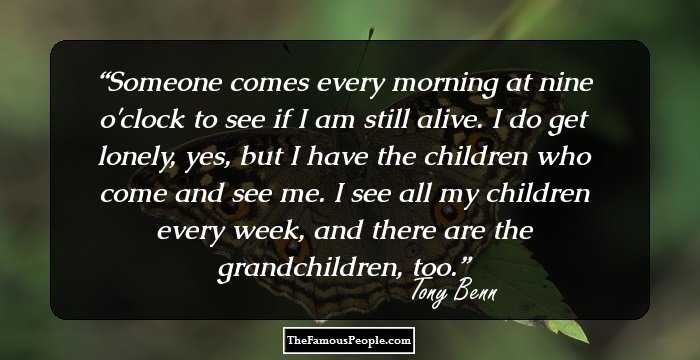
Someone comes every morning at nine o'clock to see if I am still alive. I do get lonely, yes, but I have the children who come and see me. I see all my children every week, and there are the grandchildren, too.
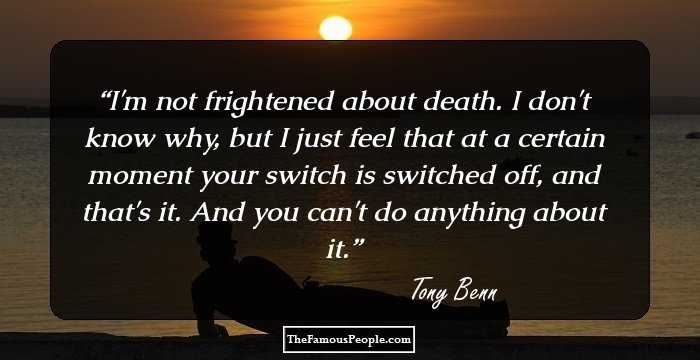
I'm not frightened about death. I don't know why, but I just feel that at a certain moment your switch is switched off, and that's it. And you can't do anything about it.
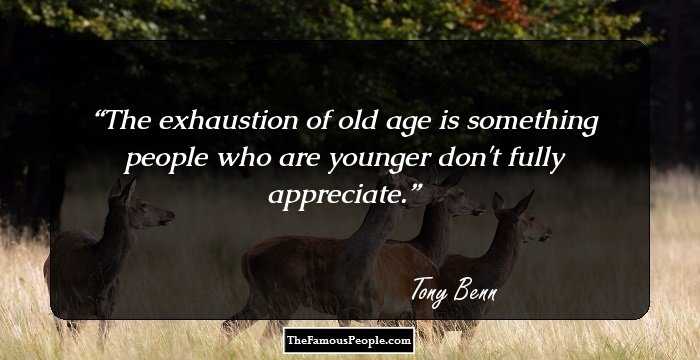
The exhaustion of old age is something people who are younger don't fully appreciate.
Age does take it out of you, and I haven't the energy I had before. Sometimes I have breakfast and sit in this chair, and I wake up and it is lunchtime. In the past, the idea of sleeping through a morning would have horrified me, but you have to accept the limitations that old age imposes on you.
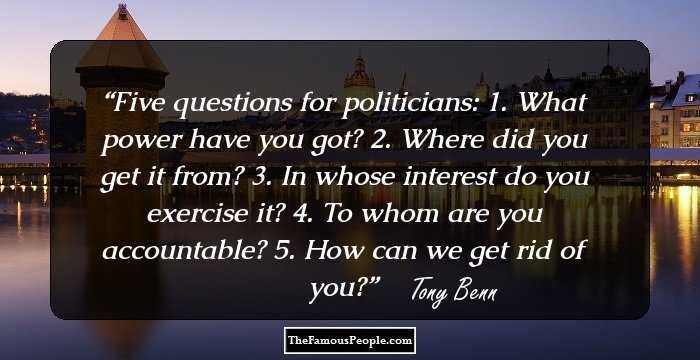
Five questions for politicians: 1. What power have you got? 2. Where did you get it from? 3. In whose interest do you exercise it? 4. To whom are you accountable? 5. How can we get rid of you?
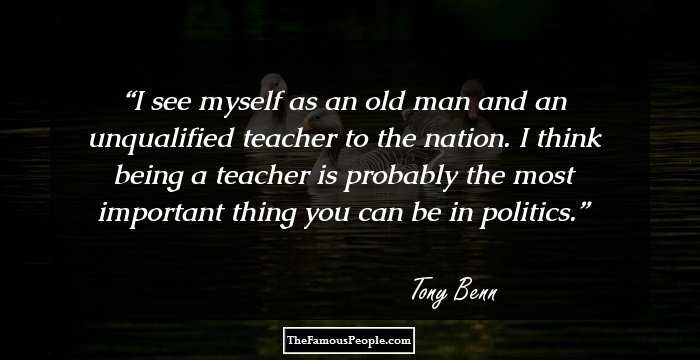
I see myself as an old man and an unqualified teacher to the nation. I think being a teacher is probably the most important thing you can be in politics.
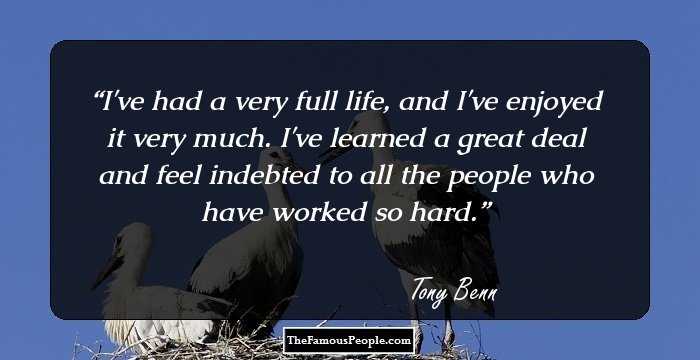
I've had a very full life, and I've enjoyed it very much. I've learned a great deal and feel indebted to all the people who have worked so hard.
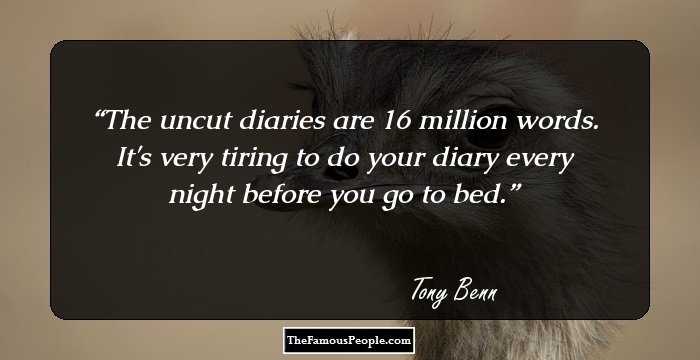
The uncut diaries are 16 million words. It's very tiring to do your diary every night before you go to bed.
The Establishment decided Thatcher's ideas were safer with a strong Blair government than with a weak Major government. We are given all these personalities to choose between to disguise the fact that the policies are the same.

An educated, healthy and confident nation is harder to govern.
I've got four lovely children, ten lovely grandchildren, and I left parliament to devote more time to politics, and I think that what is really going on in Britain is a growing sense of alienation. People don't feel anyone listens to them.
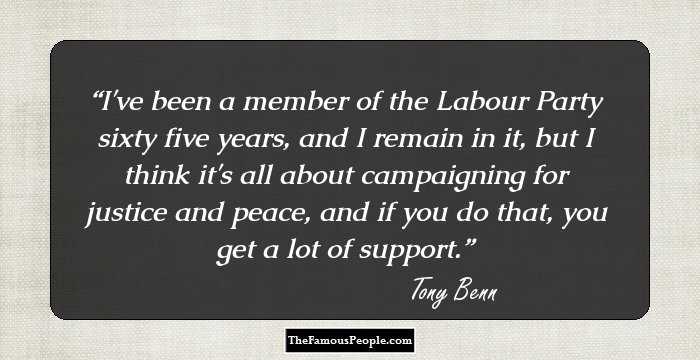
I've been a member of the Labour Party sixty five years, and I remain in it, but I think it's all about campaigning for justice and peace, and if you do that, you get a lot of support.

